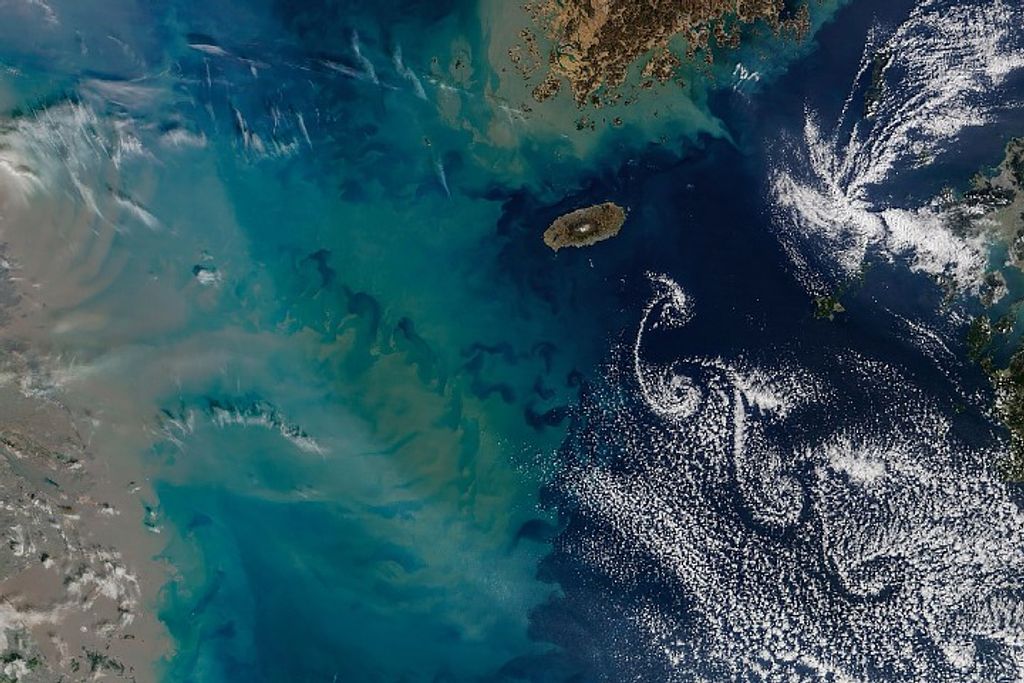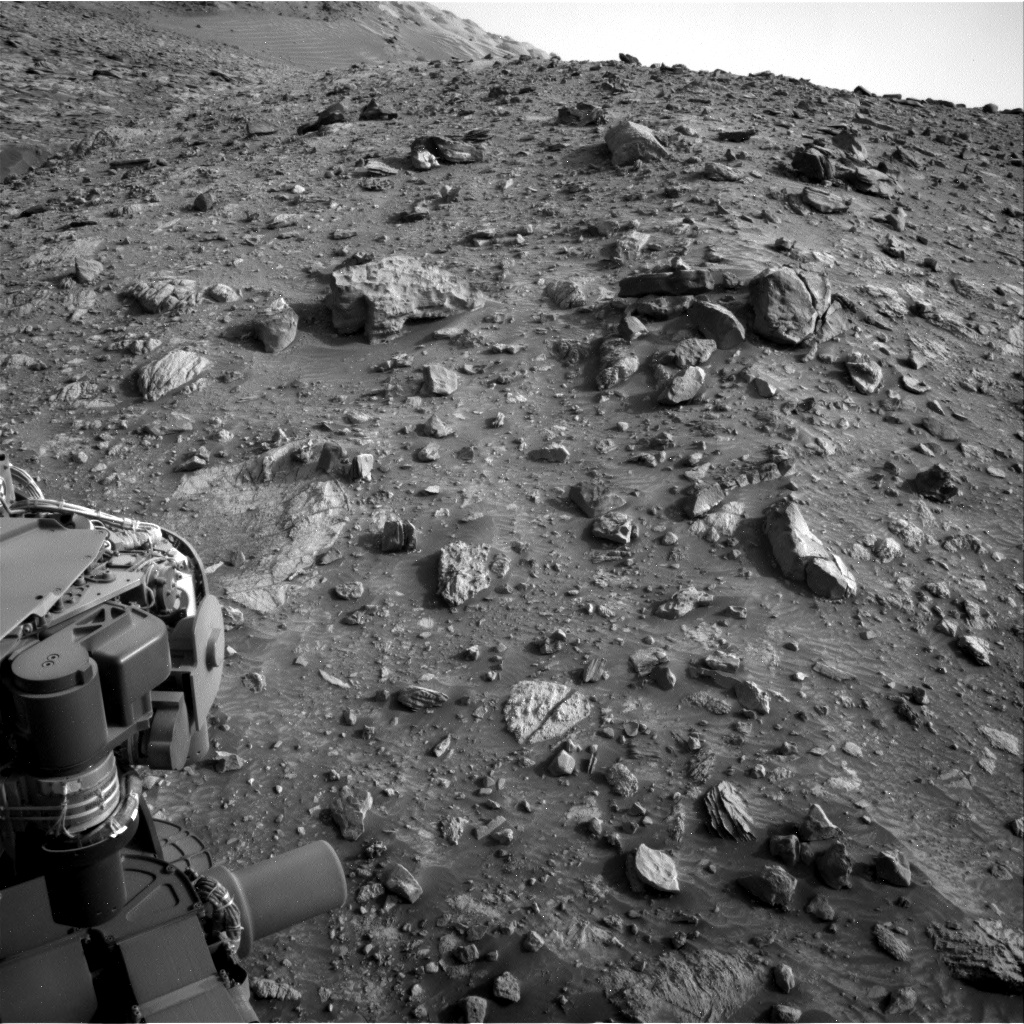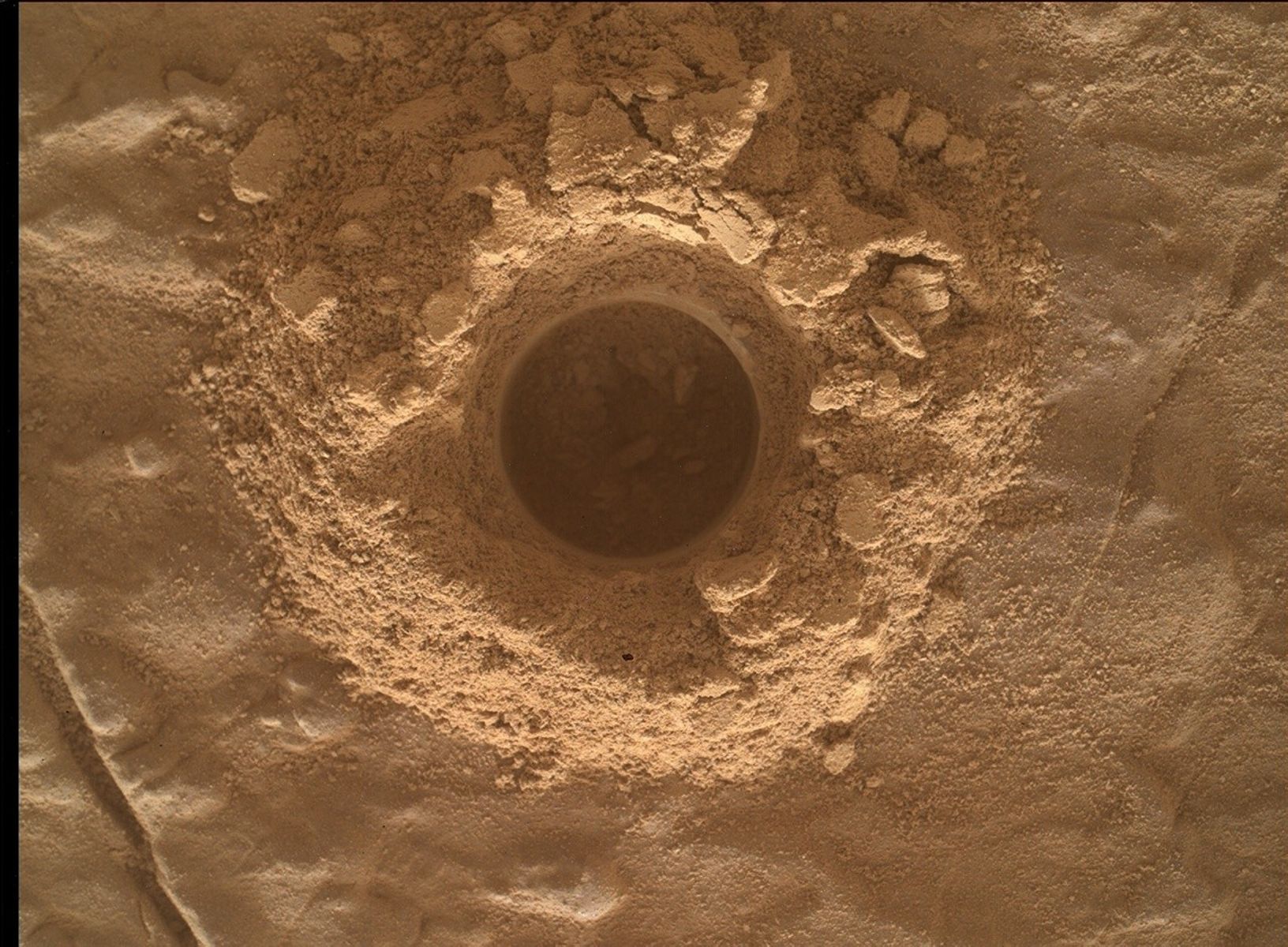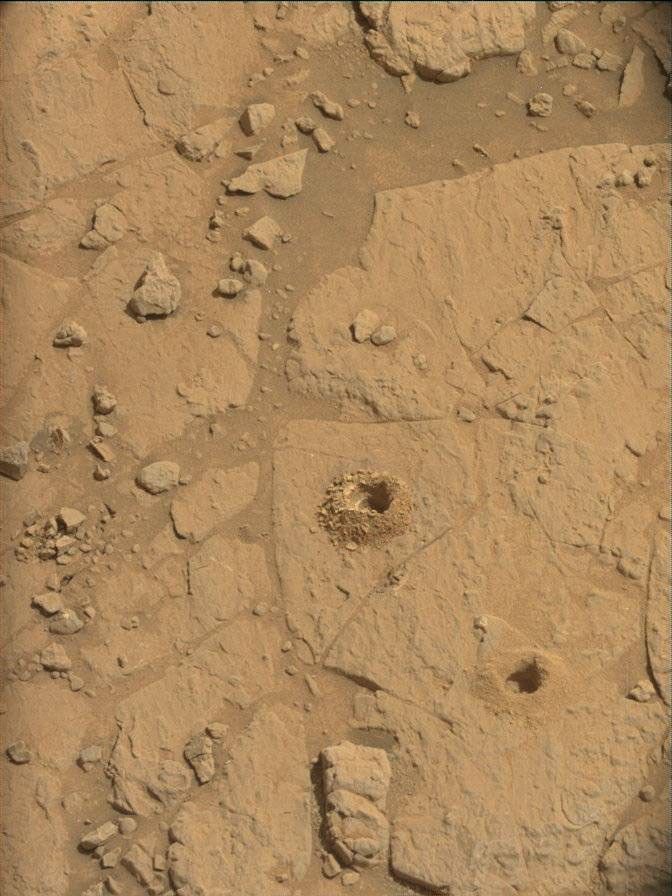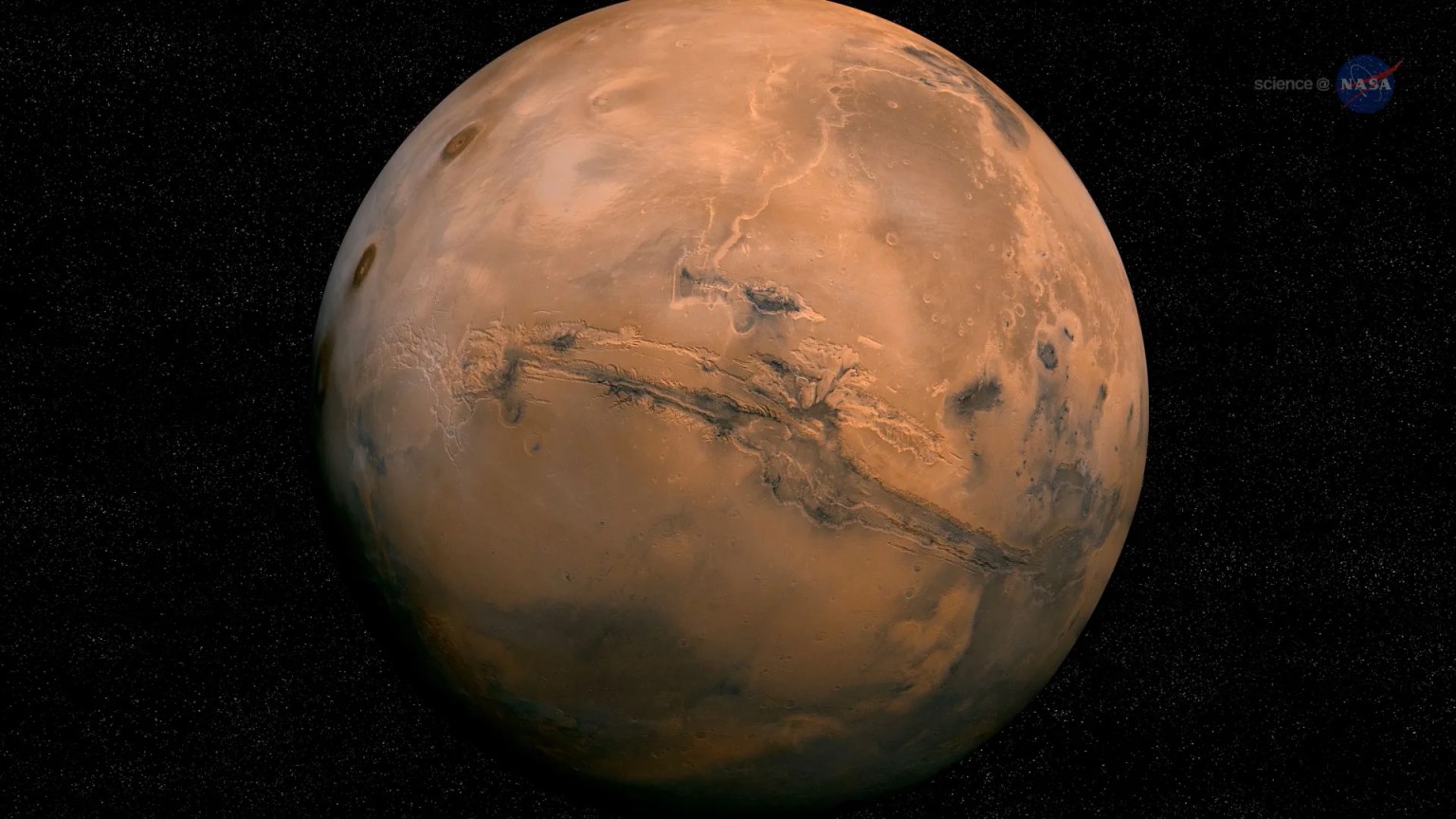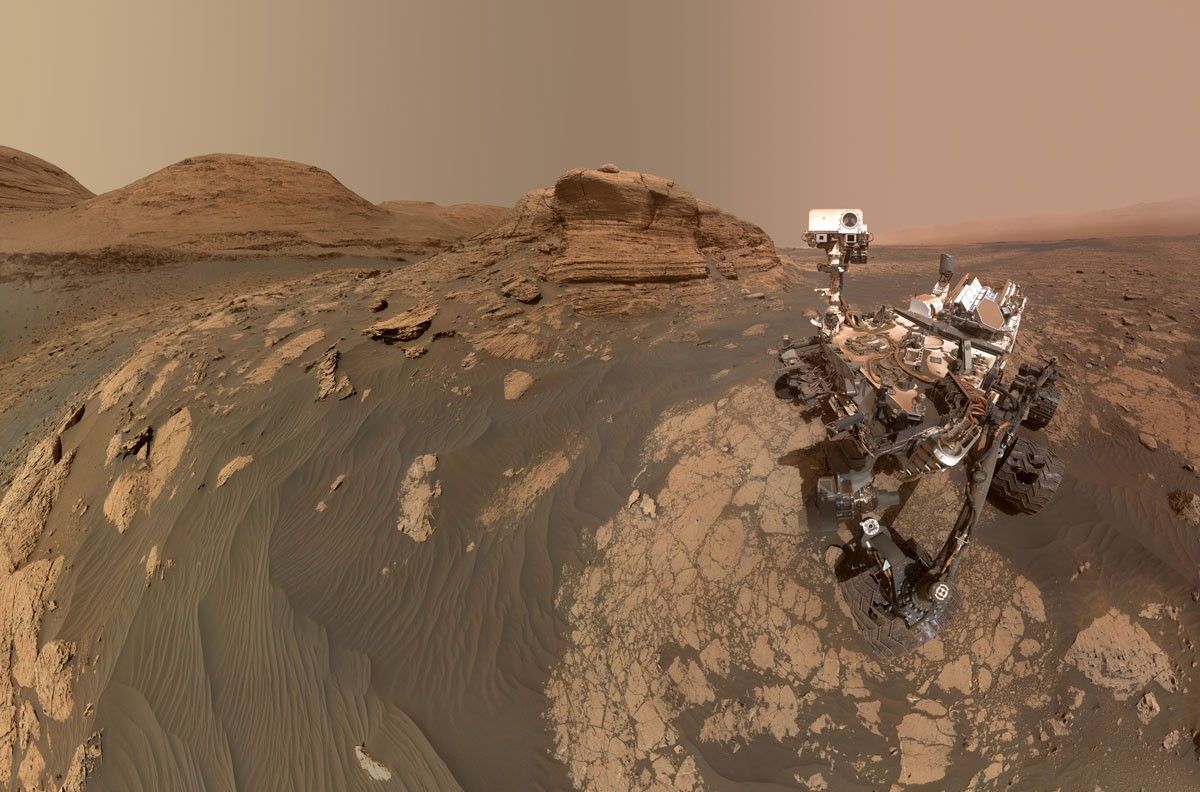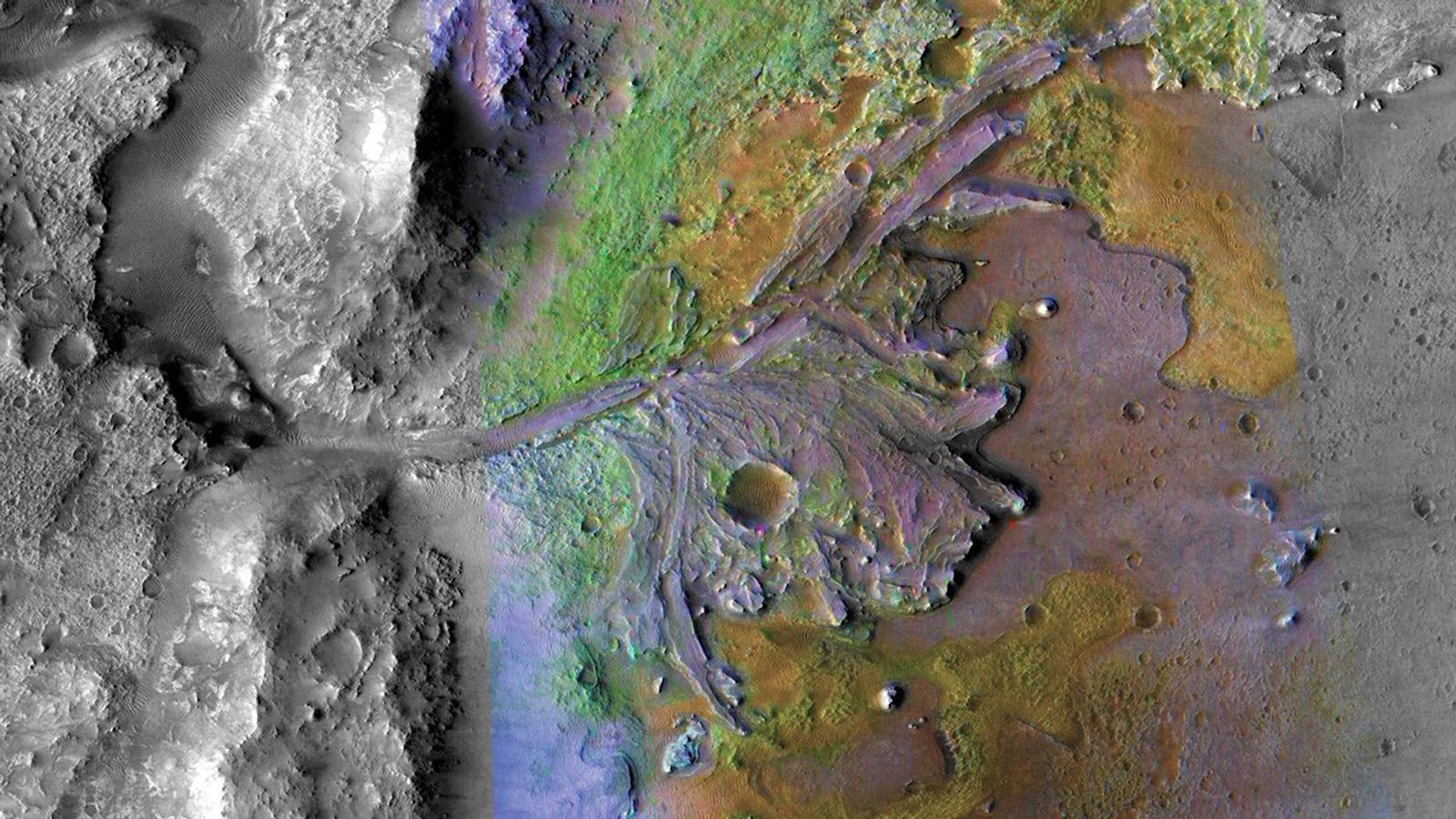Earth planning date: Monday, April 29, 2024
On this two sol-planning day, the Curiosity science team logged in and found ourselves face to face with ‘Pinnacle Ridge’ (pictured above), part of the upper Gediz Vallis Ridge (uGVR). We saw two types of rocks in our workspace: light-toned layered rocks and darker toned rocks. Rocks that look this different are very exciting to a geologist’s eye – it means the rocks could have been formed in different environments, and could be made of different things... so how did these two types of rock end up next to each other? That’s for our clever team of scientists to work out, and we need our full suite of instruments to do that. Unfortunately, one of Curiosity’s wheels wasn’t on firm ground so we couldn’t safely unstow the arm, but these rocks are so exciting, we decided to scoot backwards about 15 cm to readjust the wheels so we can hopefully get full contact science on Wednesday.
However, we made the most of the time we have here taking lots of images. On the first sol, Curiosity has a massive 2.5 hours of science planned! This includes ChemCam Laser Induced Bedrock Spectroscopy (LIBS) and a Mastcam documentation image on one of the lighter toned rocks in the workspace named ‘Dawn Wall,’ as well as a passive observation on a darker toned rock named ‘Banner Peak.’ ChemCam will also take an RMI of ‘Pinnacle Ridge,’ and a long distance RMI of the base of ‘Kukenan’ butte. Team members interested in Mastcam are making the most of the science time scheduling a massive 37x2 mosaic of ‘Pinnacle Ridge’ to look at the distribution of the light and dark toned rocks we are seeing, as well as two smaller mosaics including within Pinnacle Ridge including a 9x1 of a scarp and a 4x1 of a possible basal contact. On this sol, Curiosity will then scoot over – a drive of ~15 cm – hopefully giving us a stable base to unstow the arm and get full contact science on these rocks later in the week.
On the second sol, Curiosity performs a ChemCam LIBS target on a rock in our new(ish) workspace. Curiosity will also take some environmental monitoring activities, including a 30 minute Navcam dust devil movie and a suprahorizon movie. We are also performing the SAM instrument’s electrical baseline test (EBT) that periodically occurs to monitor the instrument’s functioning. Curiosity will be kept very busy over the next few sols exploring Pinnacle Ridge here at uGVR.
Written by Emma Harris, Graduate Student at Natural History Museum










